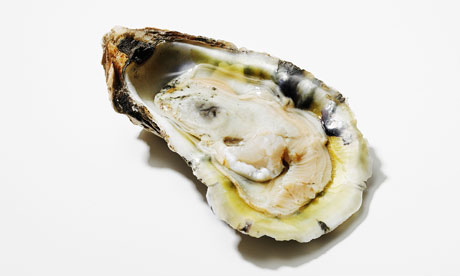
Age: Between 542m and 488.3m years old.
Come off it. I can still remember the carnet. Ah. You are confusing the Oyster card with the bivalved mollusc.
And what's the difference? One's a plastic ticket used on the London underground. The other's a sea-dwelling creature consumed as a delicacy since at least the bronze age.
I've never tried one. What's does it taste like? Like kissing the sea on the lips.
Says who? The poet Léon-Paul Fargue.
Do you agree? More or less. Except that after "like kissing the sea on the lips", I'd add: "and then vomming all over your trunks."
They sound poisonous. In 2009, 500 diners fell ill after eating oysters at Heston Blumenthal's Fat Duck restaurant.
Wasn't that a one-off? Not according to new research from the Food Standards Agency.
Which says what? That 76% of oysters found in British oyster-growing beds contain traces of norovirus.
And noro's the thing that makes you ... Vomit, yes.
In which case, I shall stick to the mince pies this festive period. That would be wise. But in the oyster's defence, half of the infected samples contained only low levels of the virus.
Yet by implication, over a quarter still contain quite a lot of noro. True. But before selling them on, wholesalers always place their catch in purification tanks, which further reduces the risk.
Reduces the risk, but doesn't remove it? Not necessarily, no. Especially if you're pregnant, elderly, or infirm.
Well, I am pregnant. And once he or she is born, Pass Notes Junior will not be weaned on oysters. Very sensible. Though it should be said that people regularly enjoy them without mishap.
Says who? The Carpenter, for one.
What did he say? I'm paraphrasing, but basically: "O Oysters, shall we be trotting home again?" But answer came there none.
And this was scarcely odd, because? They'd eaten every one.
Do say: "The world's your oyster ..."
Don't say: "... but your oyster is a not-necessarily-appetising hors d'oeuvre that could make you severely ill."

